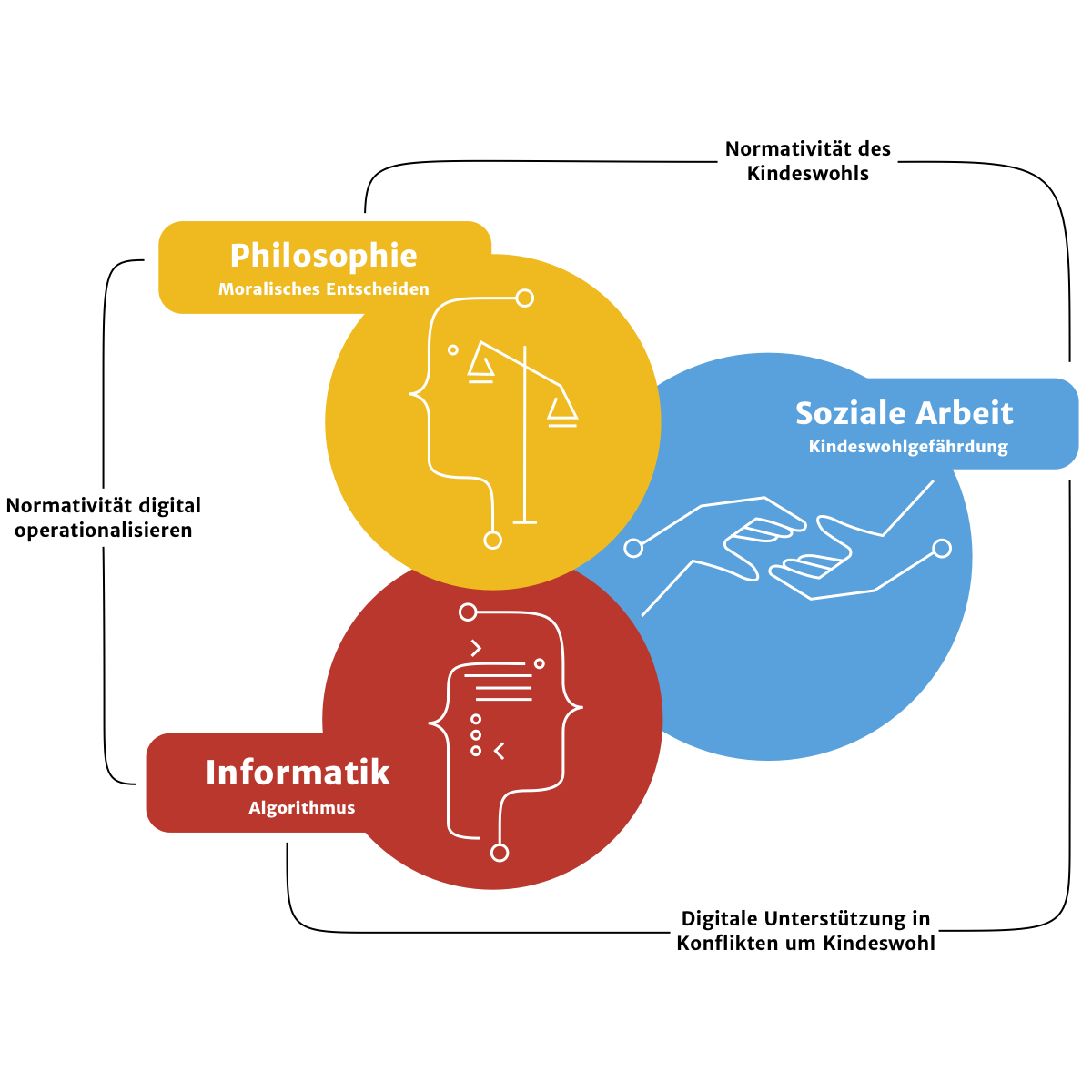Topic
Ethics and Digital Operationalization in the Field of Child Welfare Endangerment.
Norms and values guide people’s actions. In modern societies, social and political institutions should also meet these normative criteria. In view of the advancing digital possibilities, the question arises whether institutional decision-making can be digitally supported or even replaced by software programs. This applies all the more in social conflicts and morally charged situations in which people have to make ethically and legally justified decisions in a short time and with limited resources. Can algorithms help public institutions to act ethically, especially in such conflict situations?
Structure

Research Questions
Social work
- How can social work work processes and decisions be digitally supported?
- How can the normative aspects of decision-making be formulated appropriately?
- How can appropriate assessments of child welfare risk and the evaluation of risk potential be made on this basis?
- How can ethically grounded digital support experiences help in this?
Philosophy
- How can the normative aspects of child welfare be conceptualized (e.g., child welfare, self-determination, fair procedures, avoidance of discrimination)?
- How can the resulting normative criteria be translated into algorithms, into rational decision-making processes, and beyond that into digital social work practice?
- What understanding of normativity, rationality and values is suitable for this and what consequences arise from the practical implementation requirements for philosophy and its understanding of normativity in the digital age?
Computer Science
- How can normative criteria be quantified?
- How can the normative dimensions be translated into algorithms?
- Which specific peculiarities of ethical conflict cases have to be considered in particular?
- What are the consequences of the results and requirements of computer science for the other two disciplines?
- How can algorithms contribute to decision making through scoring
Team

Jennifer Burghardt,
M.A.
Research Assistant
Institut für E-Beratung
Technische Hochschule Nürnberg Georg Simon Ohm
Keßlerplatz 12
90489 Nürnberg
Tel.: +49 911-5880-2595
Fax: +49 911 5880 – 602595
E-Mail: jennifer.burghardt@th-nuernberg.de
http://www.e-beratungsinstitut.de

Christopher Koska,
M.A.
Research Associate and Project Coordinator KAIMo At the Chair of Practical Philosophy
Hochschule für Philosophie München
Kaulbachstr. 31a
80539 München
Tel.: +49 89 2386-2914
Fax: +49 89 2386-2302
E-Mail: christopher.koska@hfph.de
https://www.koska.de

Maximilian Kraus,
M.Sc.
Research Assistant
Department of Socioinformatics and Social Aspects of Digitalization
University of Applied Sciences Würzburg-Schweinfurt
Sanderheinrichsleitenweg 20
97074 Würzburg
E-Mail: maximilian.kraus@fhws.de

Prof. Dr.
Robert Lehmann
Professor of social work
Technische Hochschule Nürnberg Georg Simon Ohm
Keßlerplatz 12
90489 Nürnberg
Tel.: +49 911-5880-2599
Fax: +49 911 5880 – 602599
E-Mail: robert.lehmann@th-nuernberg.de

Prof. Dr.
Michael Reder
Professor of Practical Philosophy and holder of the Chair of Practical Philosophy with a focus on international relations | Vice President of the university
Hochschule für Philosophie München
Kaulbachstr. 31a
80539 München
Tel.: +49-89-2386-2357
Fax: +49-89-2386-2302
E-Mail: michael.reder@hfph.de

Prof. Dr.
Nicholas Müller
Professor of Socioinformatics and Social Aspects of Digitalization
University of Applied Sciences Würzburg-Schweinfurt
Sanderheinrichsleitenweg 20
97074 Würzburg
Tel.: +49 931 3511-8186
E-Mail: nicholas.mueller@fhws.de


